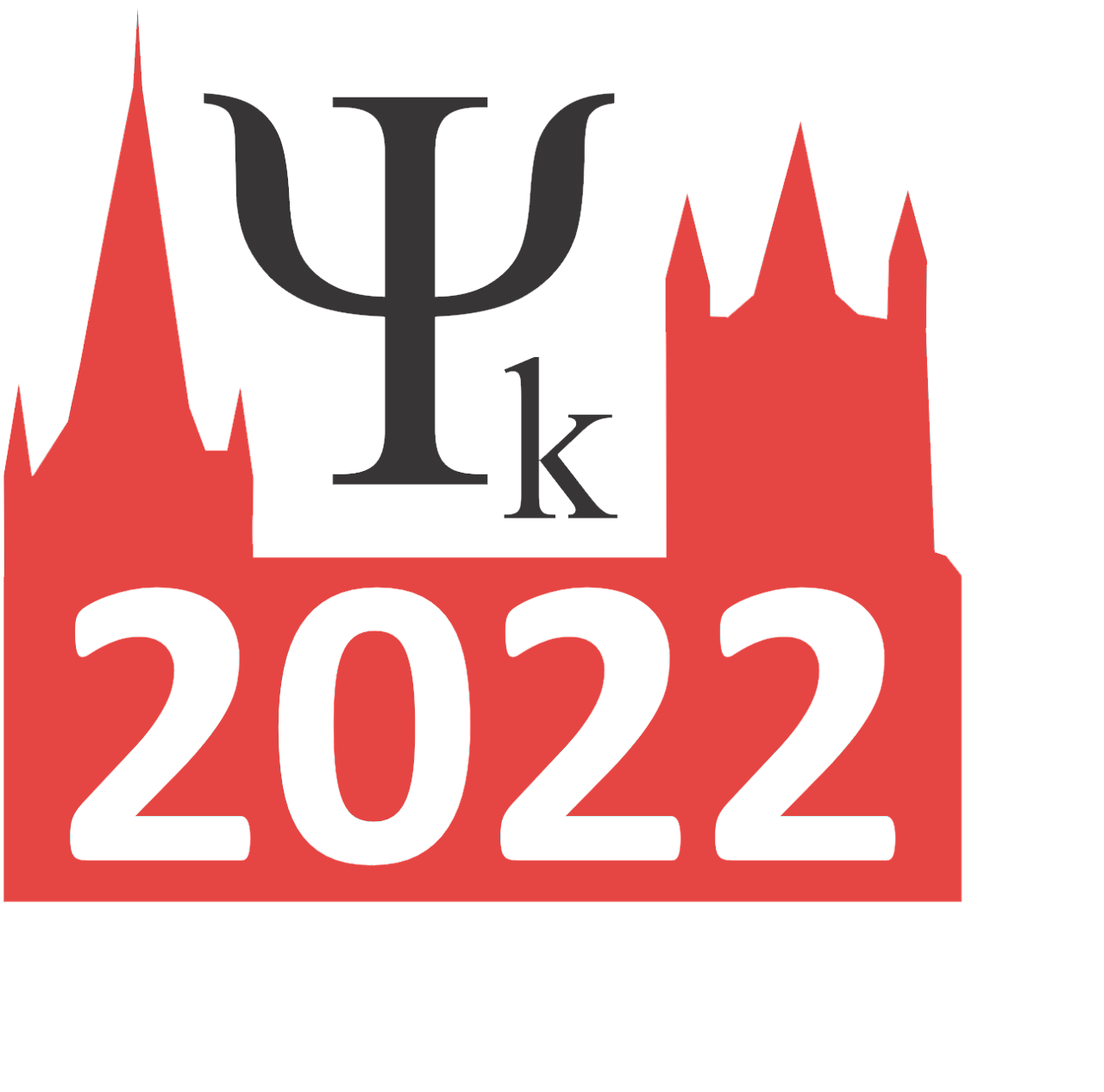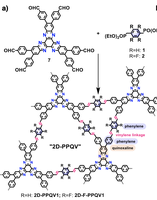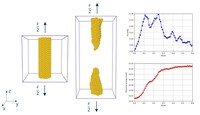

Covalent-Organic Frameworks (COFs) are crystalline porous materials that are based on organic monomeric units, so called building blocks. Through recent experimental progress, monoand few-layer COF materials have been synthesized, providing a new class of 2D materials. Due to the combinatorial approach of linking different building blocks, an almost infinite number of hypothetical 2D COFs can be constructed. From a computational point of view, however, calculating properties of these materials is demanding as their unit cells are usually very big.
In this work, we calculate elastic properties of thousands of 2D COFs using classical force fields and evaluate their accuracy by comparing them to more accurate methods like Density Functional Tight Binding (DFTB). Furthermore, show how the properties of the building blocks determine the property of the 2D COF. This paves the way for accurate materials design with properties on demand.
David Bodesheim (1), Jonathan Heinze (1), Alexander Croy (2), Arezoo Dianat (1), Robert Biele (1), Gianaurelio Cuniberti (1)
(1) TU Dresden, Germany, (2) FSU Jena, Germany











Covalent-Organic Frameworks (COFs) are crystalline porous materials that are based on organic monomeric units, so called building blocks. Through recent experimental progress, monoand few-layer COF materials have been synthesized, providing a new class of 2D materials. Due to the combinatorial approach of linking different building blocks, an almost infinite number of hypothetical 2D COFs can be constructed. From a computational point of view, however, calculating properties of these materials is demanding as their unit cells are usually very big.
In this work, we calculate elastic properties of thousands of 2D COFs using classical force fields and evaluate their accuracy by comparing them to more accurate methods like Density Functional Tight Binding (DFTB). Furthermore, show how the properties of the building blocks determine the property of the 2D COF. This paves the way for accurate materials design with properties on demand.
David Bodesheim (1), Jonathan Heinze (1), Alexander Croy (2), Arezoo Dianat (1), Robert Biele (1), Gianaurelio Cuniberti (1)
(1) TU Dresden, Germany, (2) FSU Jena, Germany








